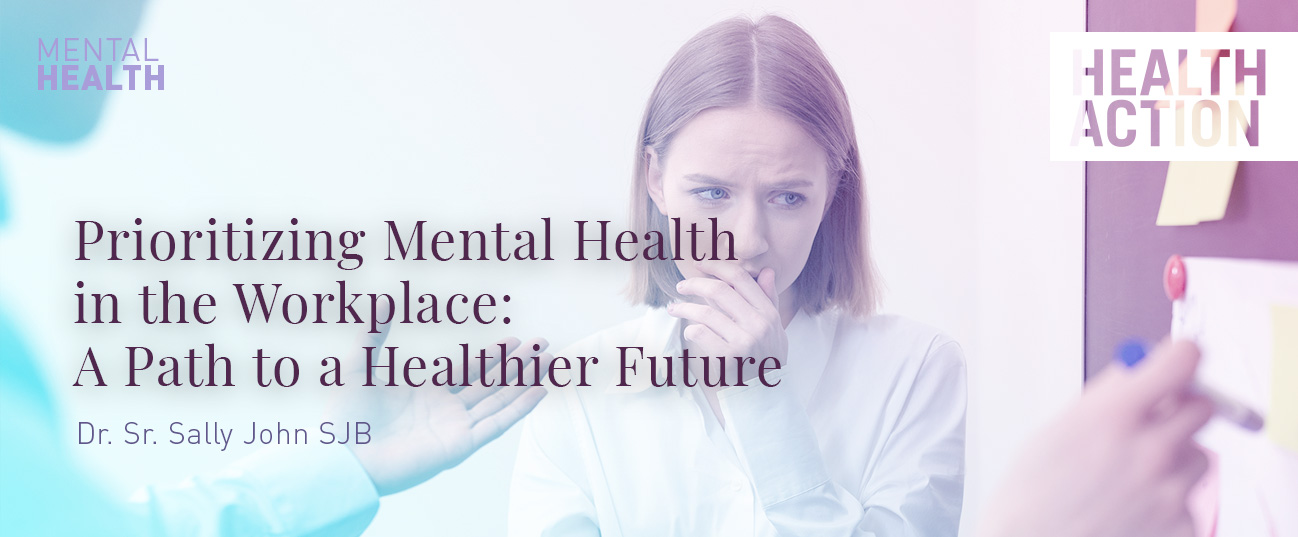
The constant pursuit of goals and perfection in today’s fast-paced, high-pressure workplace leaves many workers feeling overburdened and in danger of burnout. The theme of World Mental Health Day 2024, ‘It’s Time to Prioritize Mental Health in the Workplace’, serves as a compelling call to action, urging us to create workplaces that not only recognize the importance of mental health but actively foster environments where psychological well-being is prioritized, supported, and nurtured for all.
A Tragic Wake-Up Call
A recent tragic case in Pune, where a young woman lost her life due to intense work pressure, highlights the urgent need for change. This incident, along with the increasing reports of anxiety, insomnia, and burnout, signals a broader challenge that companies should address proactively to safeguard the well-being of their workforce. The increasing number of working professionals visiting psychiatric outpatient departments with symptoms of anxiety, depression, and stress highlights the urgent need for workplaces to prioritize mental health. Many employees are struggling with overwhelming workloads, unrealistic expectations, and limited organizational support and poor psychological safety leading to chronic stress.
The Importance of Mental Health at Work
Mental health affects every aspect of our lives, including our performance at work. When employees are stressed, anxious, or emotionally drained, their ability to focus, collaborate, and innovate diminishes. This not only affects individuals but also impacts organizational success. Businesses lose out on productivity, creativity, and ultimately profit when mental well-being is sidelined. Organizations that prioritize mental health are investing in their most valuable asset—people. Creating a workplace where employees feel valued, supported, and heard fosters greater engagement, improved morale, and higher productivity. By cultivating a positive environment, companies can reduce absenteeism, turnover, and the adverse effects of mental health issues on work.
Reducing Work Pressure and Enhancing Psychological Well-Being
A key factor contributing to the mental health crisis in the workplace is the excessive work pressure many employees face. The relentless pursuit of targets, back-to-back deadlines, and the expectation to always be available can lead to burnout, and in some cases, devastating outcomes, like the recent incident in Pune. To address this, organizations must adopt practices that promote work-life balance, such as flexible working hours, adequate rest periods, and time for self-care. Employers should regularly monitor workloads to ensure teams are not pushed beyond their limits. Creating a supportive work environment and training managers to recognize early signs of stress or burnout can help prevent these tragic stories from unfolding.
Promoting Mental Health Initiatives
Workplaces must take proactive steps to alleviate the mental health burden on employees. This includes implementing mental health awareness programs, providing access to counseling services, and promoting wellness initiatives that encourage a healthy work-life balance. Regular mental health check-ins, stress management workshops, and emotional resilience training can equip employees to better handle work pressures. It’s equally important to eliminate the stigma surrounding mental health; ensuring employees feel comfortable discussing their challenges without fear of judgment or career repercussions.
Employees seek environments where their contributions are valued, and feel supported in managing workload expectations without compromising their health. Taking regular breaks to recharge is crucial for maintaining productivity and well-being. In line with Harvard Business School professor Amy Edmondson’s concept of psychological safety, organizations should foster an environment where employees can speak up, contribute, and innovate without fear of ridicule or judgment. This sense of safety not only promotes mental well-being but also encourages creativity, collaboration, and a culture of open dialogue, essential for both employee satisfaction and organizational success.
A Call to Action
As we mark World Mental Health Day on October 10, 2024, this serves as a call to action for employers and society to prioritize mental health in the workplace. Now, more than ever, we need a workplace culture that encourages open discussions about stress, burnout, and well-being. Businesses must recognize that a healthy mind is just as important as a healthy body, and by embracing mental well-being as a core value, they can create environments where employees thrive both personally and professionally. Through proactive measures, open dialogue, and the provision of necessary resources, we can prevent mental health challenges and ensure that every individual receives the care and support they deserve. Together, we can build healthier, more productive workplaces worldwide.
Dr. Sr. Sally John SJB, Associate Professor, Psychiatry Department, MGIMS, Sewagram




